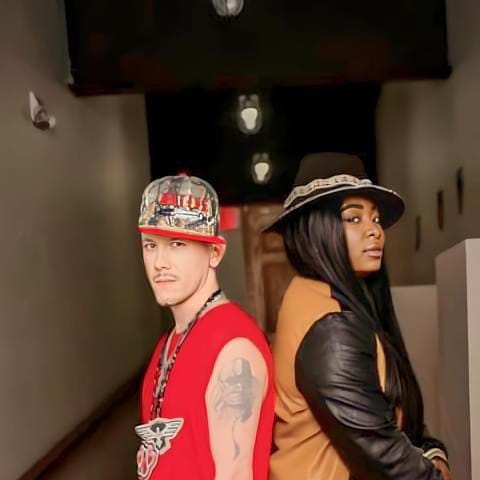
GREEN BAY – Menominee rapper Richard Turney, whose stage name is Richy Rich, had a message for the world since middle school, but never a path to get it out — until now.
Spending time between Green Bay and the Menominee Reservation, he started writing poems as a child about some of the issues affecting Indian Country and about his own experiences.
They’re issues like Intergenerational trauma, poverty, discrimination and loss of land and culture and the fight to reclaim them.
By high school, Turney, 38, started pairing his poetry with beats and created hip-hop songs for his friends.
“I was never one to rap about cars, money and women like other rappers,” he said.

Then Turney started a family and life hit, so he put his artistic side on the back burner until he met Jezelle Shawanokazic.
“I never had anyone to push me or show me how to do it,” he said before he met Shawanokazic, whose stage name is J25.
Shawanokazic founded HGM Music Group in Appleton to work primarily with Indigenous hip-hop artists and was the first Native American female to be selected as a judge for the Grammy Awards in 2021.
Shawanokazic has been pushing for an Indigenous hip-hop category at the Grammy Awards.
Indigenous artists say Indigenous hip-hop differs from much of today’s mainstream hip-hop in that its main purpose is to bring awareness to serious issues in Indian Country, like Turney had been trying to do since childhood.
Music from HGM uses conventional hip-hop beats but also incorporates traditional Indigenous instruments, such as a flute or hand drum, as artists rap or sing about positive or serious messages while trying to uplift Indigenous communities.
So far, HGM features three music videos on its website and Turney is one of the featured artists in them.
One video, “MMIW,” aims to bring awareness to the continent-wide epidemic of murdered and missing Indigenous women.
The powerful video is also a tribute to Katelyn Kelley, a 22-year-old Menominee woman who was reported missing on the reservation in 2020 and whose body was discovered the next year.
HGM artists also rap to bring awareness to resource extraction projects, such as oil pipelines, near reservations that have a negative effect on the environment.
And they rap about the continued fight for sovereignty and some of the Indigenous leaders in that fight, such as Ada Deer of Menominee Nation, Sitting Bull of Hunkpapa Lakota and Deb Haaland, who’s Laguna Pueblo and the first Indigenous U.S. Secretary of the Interior.
More:Wisconsin artists among leaders in rise of Indigenous hip hop in the US
Turney has performed at some big shows, including alongside Lil Mike and Funny Bone, who starred in the FX hit comedy TV show “Reservation Dogs.”
“Being on stage, it’s still nerve-wracking,” he said. “But I know my music is for a good purpose and I’m proud of it.”
Turney’s day job is as a welder and music is his last priority, for now, as he works to support his family, which includes three children, the oldest of whom has a disability.
But should he and HGM reach superstardom status, he’ll gladly go along for the ride.
“Obviously, everyone wants to get rich and be able to provide for their family,” Turney said. “But if it goes nowhere, I’m still proud about doing this music.”
Frank Vaisvilas is a former Report for America corps member who covers Native American issues in Wisconsin based at the Milwaukee Journal Sentinel. Contact him at fvaisvilas@gannett.com or 815-260-2262. Follow him on Twitter at @vaisvilas_frank.
This post was originally published on this site be sure to check out more of their content.

